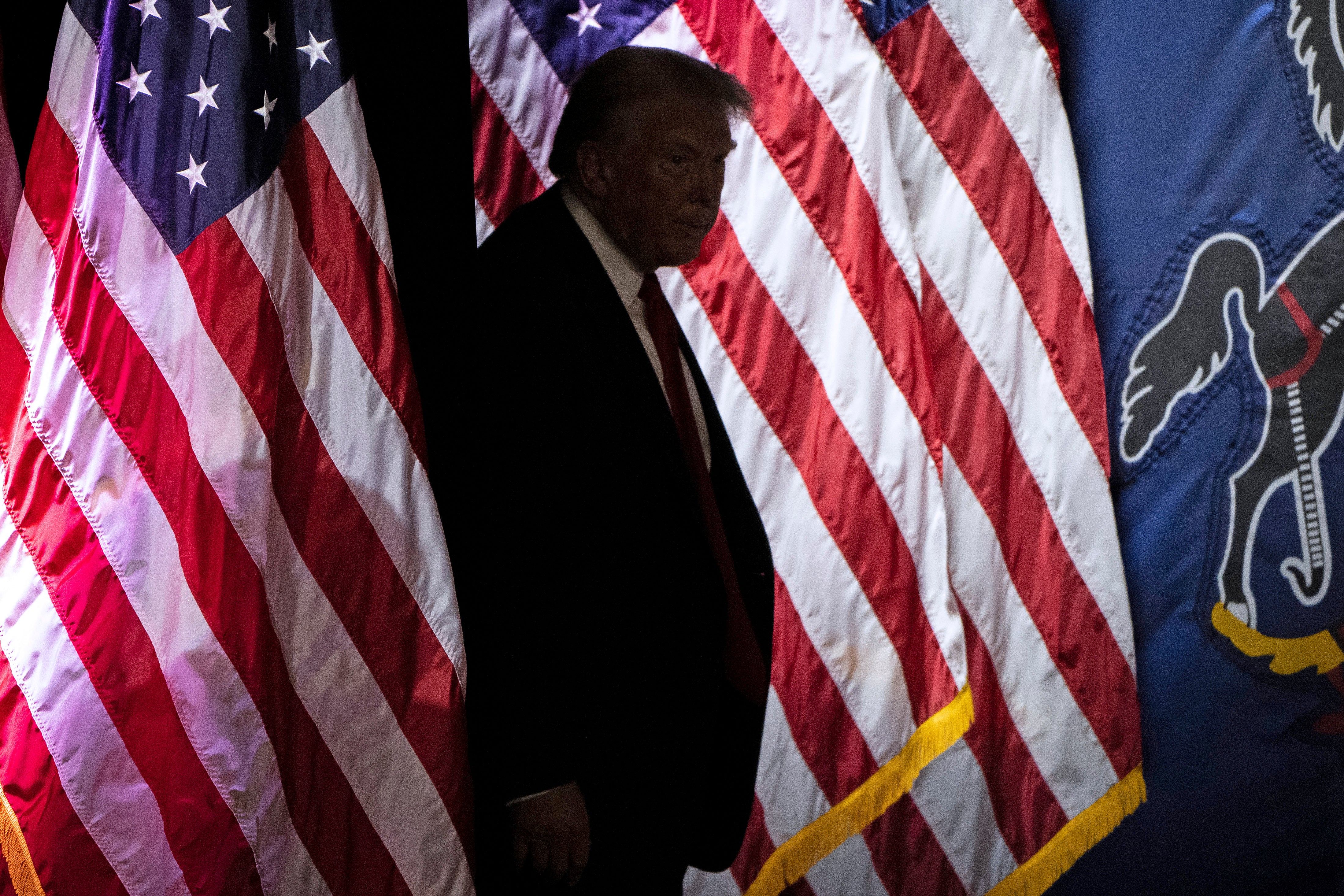Winning the election means Trump would be above the law
Letters to the editor: our readers share their views. Please send your letters to letters@independent.co.uk

Of the myriad reasons that Donald Trump should never be elected president, one stands out in my mind.
Like any other American citizen, Trump must be held accountable for the crimes for which he has been indicted and tried before a jury of his peers.
In Trump’s most serious federal indictment, stemming from his attempt to overturn the 2020 presidential election results, he is charged with four felony counts: conspiracy to defraud the United States, witness tampering, conspiracy against the rights of citizens – and obstruction of an official proceeding.
The evidence cited by the Department of Justice supporting the charges includes Trump’s effort to get the Department of Justice to claim falsely that it had found voting irregularities, his role in the creation of fake elector slates in closely contested states, his attempt to pressure vice-president Mike Pence into violating the Constitution by not certifying the election results – and inciting the 6 January Capitol riots.
If Trump is elected president, he could get away with a crime that shook the foundations of our democracy without ever standing trial. If successful, his scheme would have put a power-crazed, anti-democratic usurper in the White House. American democracy would be a sham, akin to “democracies” like Russia – and Trump would be emboldened to continue his illegal, democracy-bludgeoning behaviour with impunity.
Not holding Trump accountable by trial would indicate clearly that America’s president is indeed above the law, not subject to the legal constraints by which all other Americans must abide. If Americans hold dear the democracy that has protected our freedoms and defined who we are as a nation for over two centuries, Donald Trump must be brought to justice. If elected president, he never will.
Tom Tyner
Address supplied
A more complex matter
David Barker in his recent letter to The Independent states that when a patient stops taking prescribed medication, that act should preclude them from claiming diminished responsibility.
From a utilitarian perspective, I have some sympathy with this view. Each time a plea of diminished responsibility is made it (wrongly) strengthens the negative view about all people with mental health problems and increases prejudicial attitudes.
However, the needs and circumstances of the individual also have to be considered. What Mr Barker does not mention is the concept of “insight”.
To the individual lacking in insight, their decision is absolutely logical and sensible. In their heart of hearts, they (wrongly) believe they are of sound mind and/or being persecuted. Add to this the often frightening side effects that anti-psychotic medication comes with – and the decision to refuse medication can perhaps be better understood.
The fact that it can have tragic consequences isn’t an outcome that is logically considered by the person lacking in insight. Mr Barker’s view is not an unreasonable one, but the situation is more complex than would first appear.
David Hanman
Bromsgrove
The Wiltshire wonder
In today’s Independent, we learn that the hugely symbolically significant altar stone at the heart of Stonehenge was probably sourced from what we now call Scotland. Its discovery, and conjecture concerning the imagined logistics of moving such a heavy, awkward, and aptly named item for hundreds of miles, continues to “alter”, bemuse, and challenge the perceptions of archaeologists and historians.
Indeed, the article concludes with “of all the ancient sites in Britain, Stonehenge really is the mystery that keeps on giving”. Perhaps it is time to reappraise this venerated Wiltshire wonder!
Nigel Plevin
Somerset
Pet peeves
I was so relieved to read Louis Chilton’s article about the invasion of dogs into communal indoor spaces in The Independent.
While most are well-behaved, I am not in favour of the presence of dogs in hotels and restaurants, which seems to have become the norm since Covid-19.
I am not comfortable in the presence of dogs and also worry about cleanliness issues where hospitality is concerned. It has become very difficult indeed to find pet-free hotels. Neither do I welcome being greeted by dogs over breakfast and dinner in restaurants.
I recognise that this seems to have become a minority and unpopular view, but it needs to be recognised that we are not all pet people and that some settings are more suitable than others.
Ian Barron
Bolton
Forgetting to remember
Eleanor Busby’s recent article is a cultural wake-up call for us all.
The statistic that jumped out to me was research showing that students studying a humanities subject in 2015-16 compared to 2021-22, dropped from 21 per cent to only 15 per cent. Even 21 per cent is woeful!
Britain is a nation full of history and up until about 50 years ago we could reasonably assume the average person had a good grasp of their national and local history: where we came from, what our people did, how things came about, the nuances of our language... not to mention the influence our nation has had throughout the world – and why.
The old adage of the lessons of “history being forgotten” rings as true today as it ever did.
In the great food chain of history, we all have a role to play in persuading our children and grandchildren to seriously consider studying the humanities at school and university.
We need to be aware that in abandoning the study of history, we may soon not have enough of a culture left even to preserve for ourselves.
Bob Mathers
Address supplied
Join our commenting forum
Join thought-provoking conversations, follow other Independent readers and see their replies
Comments
Bookmark popover
Removed from bookmarks